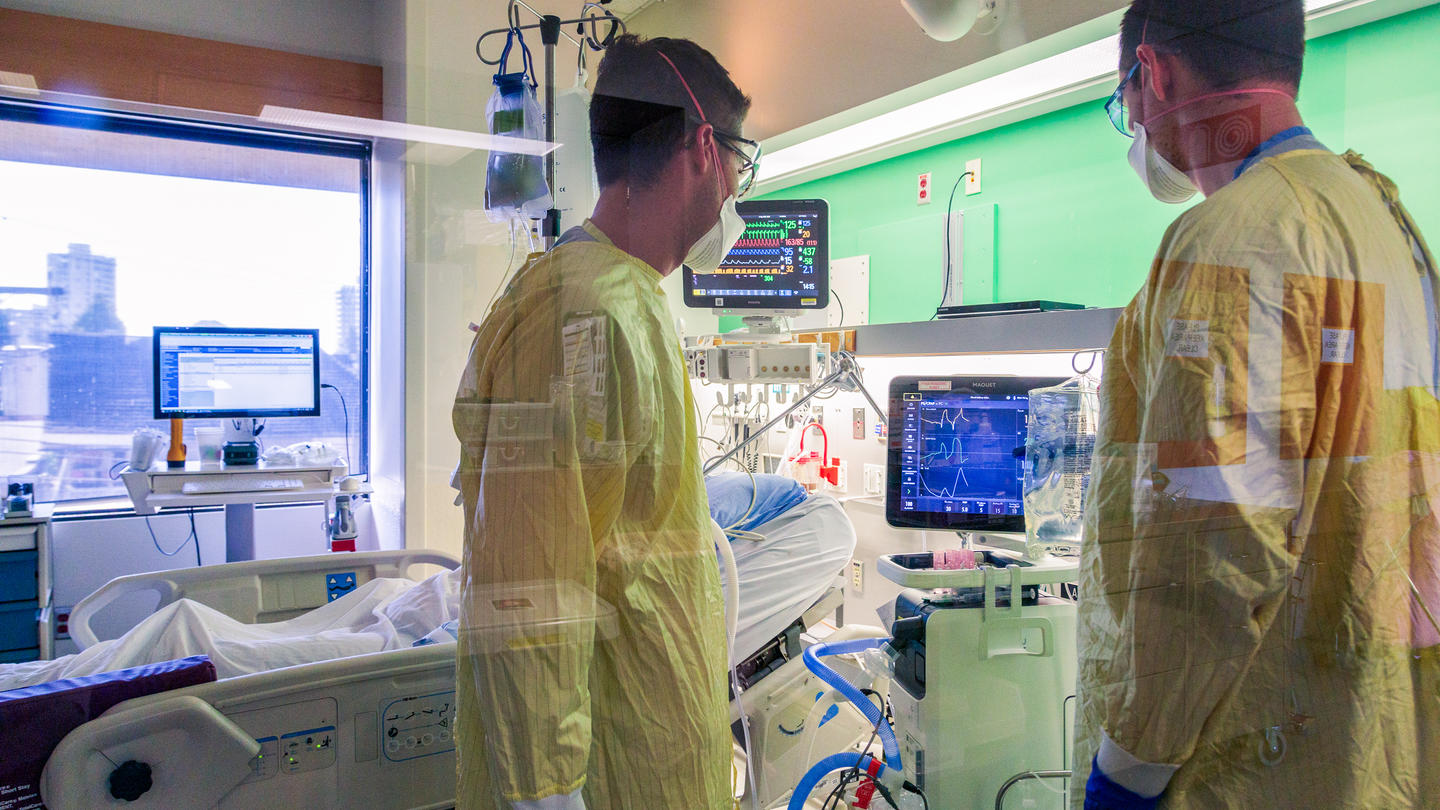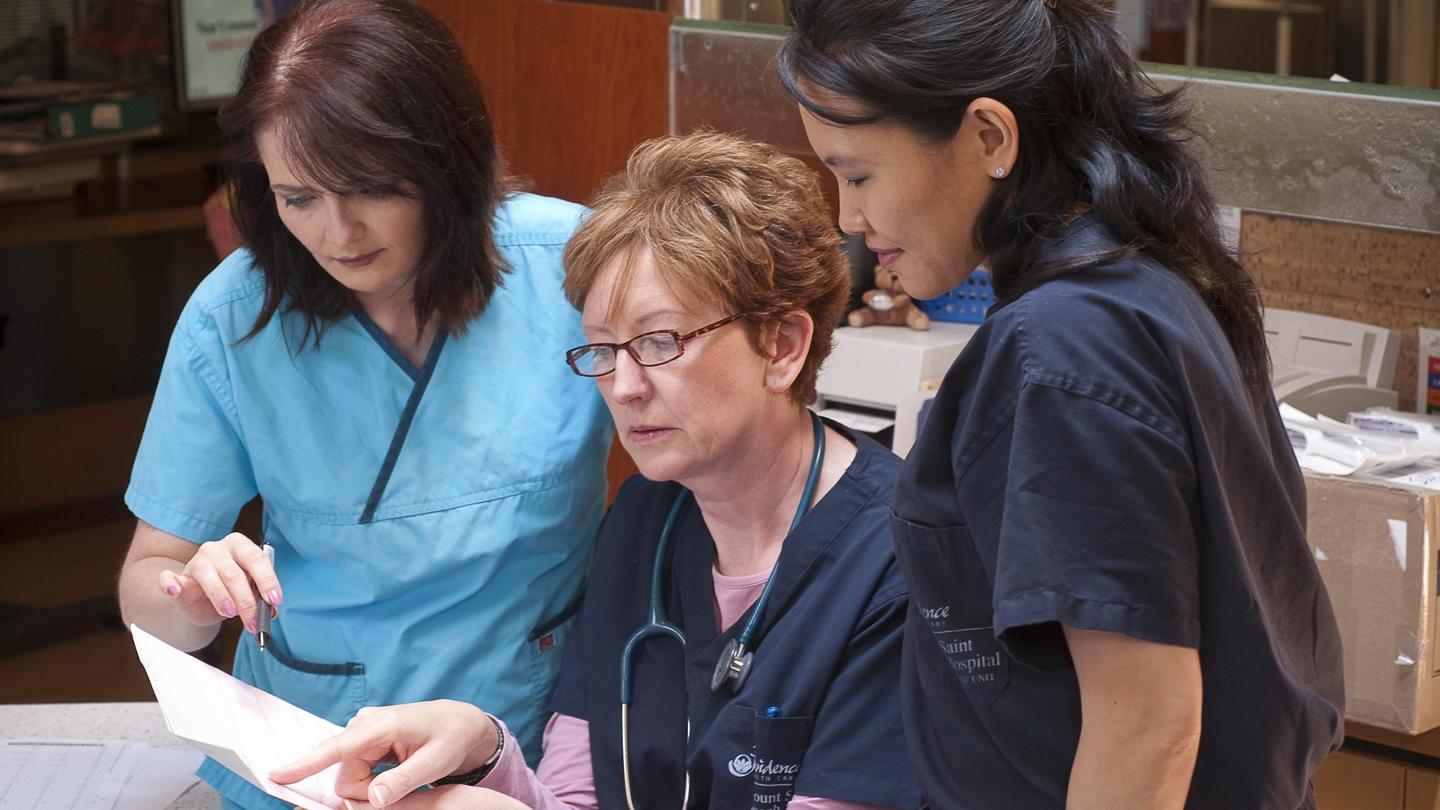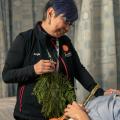Critical care
An overview of the critical care complex at St. Paul's Hospital, which includes information on the ICU, CICU and CSICU.
Overview
Patients in critical care are those who are critically ill, seriously injured and/or need close monitoring.
At St. Paul’s Hospital, we have a critical care complex. It has three different critical care units, each for a specific condition:
- Intensive Care Unit (ICU): for patients experiencing an unexpected life-threatening illness. Some examples are sepsis, pneumonia or multi-organ dysfunction.
- Cardiac ICU (CICU): For critically ill patients whose main concern is of a cardiac nature. Some examples are heart attack or myocardial infarction.
- Cardiac Surgery ICU (CSICU): For patients who have undergone cardiac surgery. Examples are heart surgery or heart transplant. Sometimes these surgeries are planned. Other times, they are due to a sudden heart problem.
While each unit focuses on a different specialty, there are things you can expect in all the units:
- A specialized team of health professionals
- Critical care nurses who provide close care (i.e., one nurse for every one or two patients)
- Special machines to help support and track the patient’s body’s systems
- Other specialists who may provide consultations and expert opinions
When a loved one comes into the critical care complex, they are not the only person affected. This is one of the most stressful times in the life of a person and their family. We define family as whoever is important to the patient. As the patient’s family, you are a vital member of the team. Your concerns, questions, input, and feedback are important. We are here to help you navigate this stressful and unknown time.
For more information on what to expect when a loved one has been admitted to our critical care complex, please refer to the Patient and Family Handbook below.

What to expect in the first 6 hours
What to do in the first six hours of an unplanned admission to the critical care complex.
When you are in Vancouver
Here's what to do:
When you are not in Vancouver
If you cannot make it down, we have options to connect by telephone or online with the patient and health care team. Family meetings can also take place the same way for those not in Vancouver.
Travel safely to the hospital; consider having someone else drive you, if possible.
Determine a main contact for the care team to have. If that person is you, you may want to appoint an alternate while you are traveling.
The social work team will reach out. They have resources and suggestions for where to stay nearby and other resources (there are discounted rates of nearby hotels if needed).
Please note: For planned admissions in the CICU and CSICU, the social work team is available to support when asked. If you need help with lodging, filling in forms, etc., please inform the team caring for your loved one and they will connect you.
Partners in patient safety
As a partner in your loved one’s care, you have a role to play in keeping them and the environment safe. Things you can do include:
Sepsis
This serious medical condition happens as a body’s response to severe infection. Early recognition and treatment cuts sepsis mortality by half. Sepsis comes from other medical conditions. These include an infection in the lungs, urinary tract, skin, abdomen, or other part of the body. Symptoms include fever, chills, rapid heart rate and breathing, rash, confusion and disorientation. For more information:
Making decisions
For a planned admission to the Cardiac ICU (CICU) or Cardiac Surgery (CSICU), you may have had a chance to discuss with your loved one their wishes and values ahead of time. For unplanned admissions, you may not have had that chance.
In both cases, there may be times when your loved one can't make decisions about their own treatment. So, an alternate person will need to step in and help. You know your loved one best. You can help us find out what they would want if they could speak.
Your loved one may have already discussed the treatments and life support they would want in serious illness. If they haven't, you may have had other talks with your loved one. These talks can help us find out their wishes.
Information for families
It can be overwhelming to have a loved one in the critical care complex. Here are a few things that you can expect during your loved one's stay with us.
Meet the team
We take pride in being open, accessible and responsive to our patients and families. We are a multi-disciplinary and innovative resource to our colleagues, both within Providence and across BC. Our referring health colleagues around the province can rely on us to take extraordinary measures to help.
The Critical Care team includes different health care professionals working together. They ensure every aspect of care is considered when caring for critically ill patients.

Location
St. Paul’s Hospital
1081 Burrard Street
3rd floor Providence Building
Vancouver BC, V6Z1Y6
Telephone: 604-682-2344
- Intensive Care Unit (ICU): ext 62264
- Cardiac ICU (CICU): ext 62285
- Cardiac Surgery ICU (CSICU): ext 62117
(Note: The office will not be able to supply answers to clinical questions.)
Support for Indigenous Peoples
The Indigenous Wellness Liaison Team is here to support your health journey. Team members offer cultural support and healthcare advocacy. Learn more below or call them at 604-682-2344,62937 or email IWL@providencehealth.bc.ca.
Teaching & research
This is a teaching hospital and many staff from the medical, nursing and allied health disciplines are involved in clinical teaching across the critical care complex. You likely will encounter one or more clinician students who work under supervision of our team.
We are also always doing research and participating in quality improvement projects.
Critical care patients, family members and/or their caregivers may be invited to take part in research or invited to provide feedback for quality improvement projects.
Participation is voluntary. The care a patient receives is not impacted whether they choose to take part or not.
If you have feedback that you would like to provide on the care you received, please visit our Compliments and Complaints page.
Careers
Are you interested in working at the critical care complex at St. Paul’s Hospital?
For critical care employment postings, and/or more information on professional and leadership development opportunities, please visit our Careers page.
